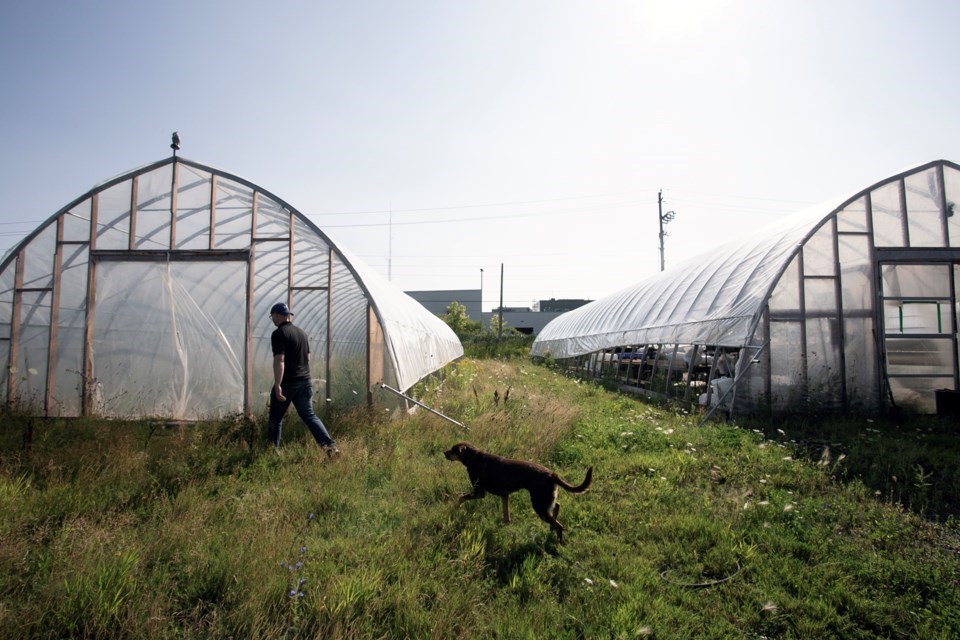Sault Ste. Marie will soon be home to a new incubation centre that’s focused on helping Northern Ontario agri-food producers grow their operations and get their products to market.
Led by the Rural Agri-Innovation Network (RAIN), an offshoot of the Sault Ste. Marie Innovation Centre, the incubation space will feature a test kitchen where food producers can develop product prototypes while also receiving mentorship and technical expertise to scale up their operations.
RAIN set the wheels in motion for the incubation space two years ago, as demand for local food and food products continued to grow across the region, noted David Thompson, the organization’s director.
“One of the biggest gaps we have is just the amount of technical support that’s required to be able to take a producer from an idea around a product they have through their home kitchen — and they’re just selling it at a farmers market — to something that’s essentially retail-ready,” Thompson said.
To make that leap, producers face challenges — learning how to scale up their ingredients to serve a larger market, for example, or navigating a snarl of government regulations around things like food safety or labelling, he added.
The incubation centre will have advisors on hand to guide producers through that process, as well as mentors who are themselves food producers that have gone through the experience.
“They would know, how do I get ready for venture capital, if that’s my goal, or how do I properly structure this company for growth, or how do I put together a pitch, or how do I prepare a set of performative financials for the next three to five years,” Thompson said.
“So this mentorship piece is all about that.”
Though there’s a clearly demonstrated need for this type of service in the North, as recently as late September it looked like the project could be in jeopardy.
Part of RAIN’s business plan involved the acquisition of a large facility in the north end of the city owned by the local branch of the United Way.
For the last five years, the former banquet hall has served as a food-sorting and distribution facility for Harvest Algoma, a non-profit organization run by the United Way that collects donated food and distributes it to partner agencies throughout the city, which then supply people in need.
Equipped with a large kitchen for food preparation, and greenhouses, the facility was the perfect fit for RAIN’s purposes, Thompson said.
But just as the organization was making headway on its incubation project, the United Way decided it wanted out of the food distribution business and approached RAIN to take over.
“They were of the mindset that a community organization would carry that program forward,” Thompson said. “But the only organization who they trusted enough to do that was RAIN as part of the innovation centre, because our focus is food and supporting resilience in the agri-food sector.”
Want more business news from the North? Sign up for our newsletter.
RAIN agreed, folding the Harvest Algoma program into its business plan and intending to develop it into a social enterprise so it could eventually become self-sustaining.
Thompson said the organization spent the bulk of the summer canvassing community stakeholders for support. But as fall neared without funding in place, RAIN made the tough decision to shut the project down.
It was at that point Harvest Algoma won a last-minute reprieve, bolstered by support from Sault Mayor Matthew Shoemaker and some key community leaders.
Thanks to their efforts, the city pledged $180,000 over three years, while Algoma Steel came forward with a commitment of $120,000 during the same time period. Other donations followed.
“We’re at the point now where we’ve raised about $1 million,” Thompson said, which puts RAIN in a stable position to get the project off the ground.
Thompson said the existing Harvest Algoma staff will remain in place to oversee that program, leaving RAIN to focus on its agri-food activities. The two organizations will share the space.
Earlier this year, chef Jane McGoldrick was hired as RAIN’s product development lead. An experienced restaurateur who owns and operates two local eateries, McGoldrick will be responsible for overseeing the activities in the test kitchen.
RAIN has also established partnerships with other food-related organizations to provide training to producers, and an ongoing partnership with the Fair Finance Fund will provide them with access to funding. RAIN's services are open to any producer across the North.
“Of what we’ve seen in other parts of Ontario, there are other food test kitchens, basically in a lot of major centres," Thompson said, "but in the North there isn’t really one that exists.”
The new test kitchen and related support services are expected to be available next year.




